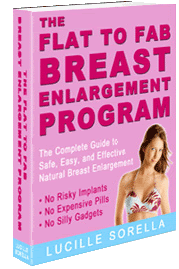Sex drive dragging? One of these may be the culprit.
Your pill prescription
Oral contraceptives decrease your body's production of estrogen and testosterone, two hormones that directly influence your level of sexual interest. As a result, some women on birth-control pills feel less of an urge to get busy. If you experience this, check in with your gyno and ask her to prescribe a Pill with a different hormone combination.
Feeling uptight
When you're anxious, your body releases stress hormones into your bloodstream, which can shut down desire in many women. Tension also has a psychological impact on your interest in sex.
Boozing it up
Sure, a few cocktails can make you feel frisky at first. But alcohol is a depressant, meaning that after a few hours, it slows bodily functions—including your ability to become aroused and be in the mood for physical fun with your guy.
Source: Marjorie Green, MD, Clinical Instructor at Harvard Medical School and Advisory-Board Member of the Women's Sexual Health Foundation in Cincinnati
- from Cosmopolitan Magazine, October 2008
Wednesday, September 30, 2009
Secret Libido Killers
Posted by
Ruby 32-DD
at
11:00 AM
0
comments
![]()
Labels: birth control pill, magazines, sex, sex drive
Monday, September 28, 2009
When Your Breasts Act Strange
We help you decode some bizarre symptoms.
Your breasts itch.
If both breasts have an allover itch, the culprit may be dry winter air, which dehydrates skin. Apply a moisturizer twice a day and after every shower.
If the itchy area is located under your breasts or in your cleavage and/or is red and scaly, it's likely a skin yeast infection triggered by sweat buildup. An antifungal cream or powder will usually clear it up fast.
Your nipples get hard for no obvious reason.
Nipple erections sometimes seem to happen spontaneously, but they're typically brought on by a subtle change in room temperature or your own anxiety or arousal levels. It's not a sign of anything serious, but if it happens frequently, wear a lightly padded bra to mask them.
A few dark hairs appear.
Hair near your areolae or between your breasts is normal, particularly for darker-hued women. Tweeze it, then prevent infection by dabbing on antibacterial cream.
Source: Marisa Weiss, MD, president and founder of breastcancer.org and coauthor of Taking Care of Your "Girls"
- from Cosmopolitan Magazine
Posted by
Ruby 32-DD
at
11:00 AM
0
comments
![]()
Labels: breast health, magazines, nipples, symptoms
Wednesday, September 23, 2009
Tap In to Your Guy's Weekend Brain: Wake Up Call
How he wants to wake up on alarm-free mornings Give Him a Visual Thrill
Give Him a Visual Thrill
Bring him coffee in bed... in the buff.
Make a Little Noise
Whisper the steamy stuff you're going to do to him.
Use Your Hands
Slowly rouse him by caressing his back.
Source: Joan Elizabeth Lloyd, author of The Perfect Orgasm: How to Get It, How to Give It
- from Cosmopolitan Magazine
Posted by
Ruby 32-DD
at
11:00 AM
0
comments
![]()
Monday, September 21, 2009
Breast-Cancer Prevention
A heart-pounding way to ward off the disease
A new study found that women who exercised regularly before turning 35 had a 23% decreased risk of developing breast cancer before menopause than did sedentary young women.
One theory: Working out seems to reduce the amount of estrogen in your body, and research indicates that the more estrogen a woman has, the greater her breast-cancer odds.
It's never too late to start indulging in moderate 30-minute cardio sessions at least 3 times a week. Try biking around your neighborhood; taking a long, brisk walk; or popping in a workout DVD to do in front of the TV.
- from Cosmopolitan Magazine, October 2008
Posted by
Ruby 32-DD
at
11:00 AM
0
comments
![]()
Labels: breast cancer, breast health, cancer, exercise, magazines
Monday, September 14, 2009
When You Feel a Lump
Don't panic—most turn out to be benign. Here, three types common in young women.
A hard, movable lump in one breast.
If it feels firm and smooth all over, like a marble, and isn't fixed in one place, it's probably a fluid-filled cyst. Have your doctor take a look to be sure. Cysts are harmless but can be drained.
A pimplelike swelling on your areola.
Sounds like a buildup of mucus in one of the many tiny glands that dot the areolae. These glands lubricate your nipples during breast-feeding. Let your gyno diagnose it; you can then leave it alone or apply a warm compress to loosen the buildup. An antibiotic may be needed if there are any signs of infection.
Little lumps that appear in both breasts preperiod.
If this happens just before your flow then smooths out once it's over, it's likely due to hormone changes and nothing to worry about. If a lump or area of thickening persists or gets larger over time, talk to your gyno.
Source: Marisa Weiss, MD, president and founder of breastcancer.org and coauthor of Taking Care of Your "Girls"
- from Cosmopolitan Magazine
Posted by
Ruby 32-DD
at
11:00 AM
0
comments
![]()
Labels: breast cancer, breast health, magazines, nipples, symptoms







